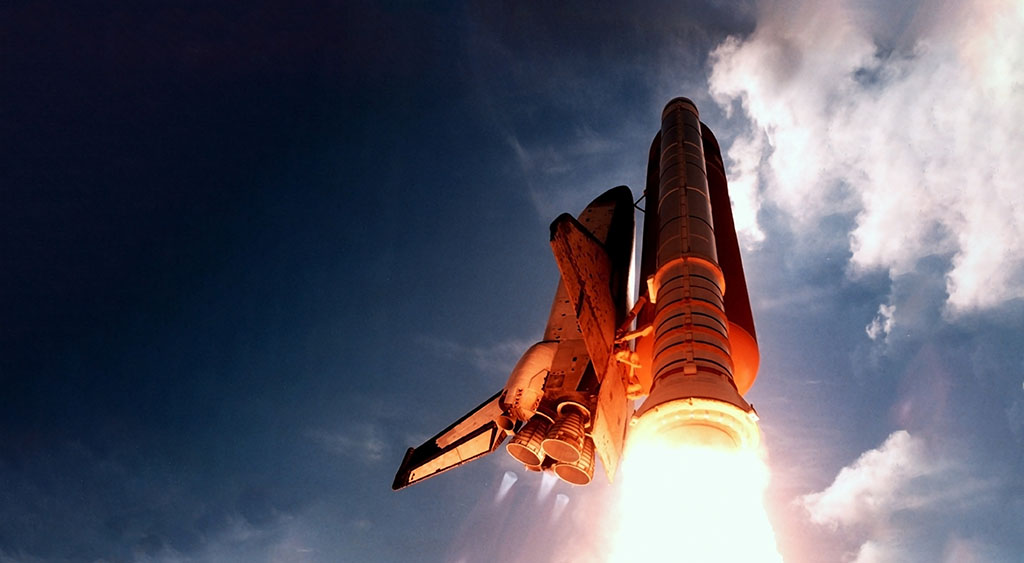
Source: Dreamstime | Creator: Archangel80889
Reading time: 5 minutes
Sixty-four years after the Soviet Union launched in space the first manmade object – Sputnik-1, mankind sent off the first space tourists and seriously considers colonising Mars. And while, until recently, space exploration was limited exclusively to government and international agencies, in the past couple of decades, an increasing number of private companies are venturing into the space flight business.
Elon Musk’s SpaceX launches satellites on a regular basis and its cargo spacecraft are used by NASA for transporting freight to the International Space Station (ISS). The ultimate destination of SpaceX is Mars.
At the same time, within less than a month, in July Richard Branson’s Virgin Galactic and Jeff Bezos’ Blue Origin successfully launched their first manned spacecraft. And while Branson was alone with his flight crew on board SpaceShipTwo, Bezos was accompanied by his brother and two space tourists who paid an unannounced sum for a seat on New Shepard. Despite being brief and only to the closest edge of space, the trips of the two billionaires were successful and set the beginning of the commercial space flights.
Thanks to its achievements, the publicly traded shares of Virgin Galactic posted a 41% increase in value as of the end of July 2021, but despite being among the leaders, the company is only one of the hundreds of various companies in the aerospace sector that is currently valued at $350 bln. According to Morgan Stanley, in 2040 it may reach $1 trln and it seems the industry is on the verge of explosive development and expansion, offering good investment opportunities.
The space sector includes the companies that design, build and launch new rockets and satellites, companies specialised in robotics, AI and space tourism, as well as companies who would directly benefit from the new space achievements. These are the companies offering geolocation, communications and internet services and many believe that they would be the main drivers of the space economy’s growth.
But where will this growth come from and which companies deserve attention?
The most obvious choice is the companies designing and building new rockets, engines and spacecraft, even though they are only a small part of the industry. In addition to the already mentioned Virgin Galactic, SpaceX and Blue Origin, the long-time leaders are Boeing, Lockheed Martin, Aerojet Rocketdyne and Northrop Grumman which are also public companies.
The already mentioned Virgin Galactic is among the leaders in the new space race and is already enjoying an increase in its share price. The company currently has contracts with NASA for commercial flights to the ISS.
Boeing, which most people associate mainly with aeroplanes, is actually also developing and producing space apparatuses and is one of the oldest partners of NASA. Boeing is the company that created the Saturn V rocket that took the Lunar mission Apollo 11 into space in 1969. At present, the company is a partner of NASA in the maintenance and service of the ISS and develops the multiple-use space capsule Starliner, which will ferry astronauts to and from the station. It is expected that the capsule will start its test flights by the end of the year.
Lockheed Martin is another leader in the aerospace and defence sector that has contracts with NASA. Besides participating in the development of the Apollo missions engines, Lockheed Martin has provided modules for the Mars rover Perseverance and will take part in the construction of the communications space station Lunar Gateway that will orbit the Moon. Space – the division that designs and builds satellites and spacecraft – generated sales totalling $11.9 bln in 2020. In the spring of 2021, Lockheed Martin announced its intentions to buy out its supplier of rocket engines Aerojet Rocketdyne in order to expand its capabilities to build rockets for civilian and military use.
Another industry that will benefit from the development of space technologies is the communications sector. Among the companies that stand out is Maxar Technologies, which creates technologies for broadband communications and designs and builds observation and communications satellites, as well as robotised systems. It has a contract with NASA for the delivery of components for the Lunar Gateway space station.
Iridium is another communications company that already has a satellite network in orbit. It is used for voice and data transmission even in areas with no mobile coverage. Besides this, Iridium also provides solutions to governments and businesses that can be used in aviation and marine navigation. Both companies are expected to be able to generate strong cash flows and develop new technologies on the back of the space industry expansion.
Those are just a few examples of companies in the space industry, which is currently on the way up and offers good trading and investment opportunities. In addition to shares of the companies in the sector, another instrument is ETFs focused on it and on the associated industries as they provide a wider market coverage than the shares of one or several companies.
Naturally, as with all other industries, profits are not guaranteed, but investing in the space industry gives everyone the opportunity to participate, in one way or another, in the flight to the stars.
Disclaimer: This article was published for information purposes only. It does not represent a buy or sell recommendation for any of the financial instruments herein mentioned. The information is obtained from generally accessible data sources and media.
***
Are you ready to launch your trading efforts into space? Open a demo account with virtual €10,000 in Delta Trading and trade the most popular companies, like Virgin Galactic, Boeing, Lockheed Martin, Aerojet Rocketdyne and Northrop Grumman in a real market environment, without any of the risks.